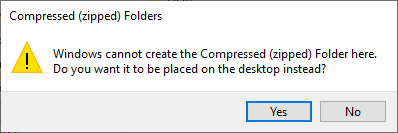Hello,
I've run some of the cmds based on other posts I've read here. This is a 2019 standard vm that has been failing nearly all updates for the last year. It gets to 30% updated, reboots, gets to 90% and rolls back updates.
What I've tried:
DISM /Online /Cleanup-Image /RestoreHealth
(CBS log attached)
dir /s /a %systemroot%\WinSxS\msil_microsoft.identitys..r.service.resources_31bf3856ad364e35_10.0.17763.1432_ko-kr_99d60db3c722e4c6
C:\Users\Administrator>dir /s /a %systemroot%\WinSxS\msil_microsoft.identitys..r.service.resources_31bf3856ad364e35_10.0.17763.1432_ko-kr_99d60db3c722e4c6
Volume in drive C has no label.
Volume Serial Number is 747A-B6EE
File Not Found
certutil -hashfile %systemroot%\WinSxS\Manifests\msil_microsoft.identitys..r.service.resources_31bf3856ad364e35_10.0.17763.1432_ko-kr_99d60db3c722e4c6.manifest SHA256
bf3856ad364e35_10.0.17763.1432_ko-kr_99d60db3c722e4c6.manifest SHA256
CertUtil: -hashfile command FAILED: 0x80070002 (WIN32: 2 ERROR_FILE_NOT_FOUND)
CertUtil: The system cannot find the file specified.
Thanks in advance for your assistance,
Rhonda
I've run some of the cmds based on other posts I've read here. This is a 2019 standard vm that has been failing nearly all updates for the last year. It gets to 30% updated, reboots, gets to 90% and rolls back updates.
What I've tried:
DISM /Online /Cleanup-Image /RestoreHealth
(CBS log attached)
dir /s /a %systemroot%\WinSxS\msil_microsoft.identitys..r.service.resources_31bf3856ad364e35_10.0.17763.1432_ko-kr_99d60db3c722e4c6
C:\Users\Administrator>dir /s /a %systemroot%\WinSxS\msil_microsoft.identitys..r.service.resources_31bf3856ad364e35_10.0.17763.1432_ko-kr_99d60db3c722e4c6
Volume in drive C has no label.
Volume Serial Number is 747A-B6EE
File Not Found
certutil -hashfile %systemroot%\WinSxS\Manifests\msil_microsoft.identitys..r.service.resources_31bf3856ad364e35_10.0.17763.1432_ko-kr_99d60db3c722e4c6.manifest SHA256
bf3856ad364e35_10.0.17763.1432_ko-kr_99d60db3c722e4c6.manifest SHA256
CertUtil: -hashfile command FAILED: 0x80070002 (WIN32: 2 ERROR_FILE_NOT_FOUND)
CertUtil: The system cannot find the file specified.
Thanks in advance for your assistance,
Rhonda

